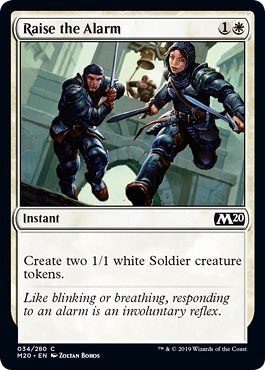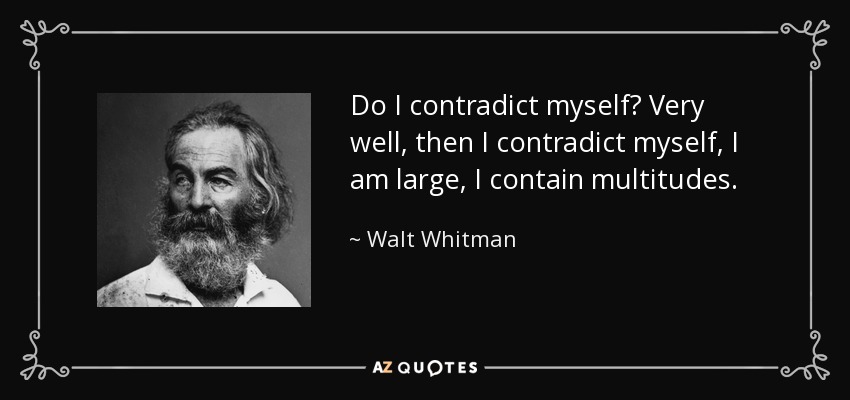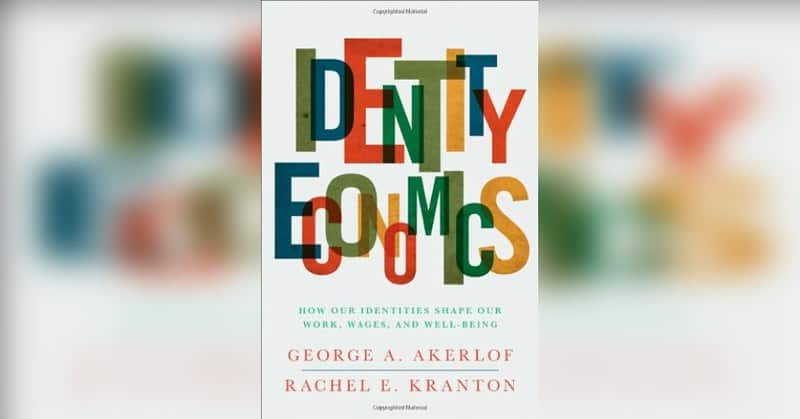Identity economics: Who are you? And how does it affect your spending?

“What?” I said. I wasn't expecting a philosophical question over supper.
“I don't think you know who you are,” Duane said.
“What do you mean?” I asked.
“I don't think you know who you are,” he repeated. “You write about money and frugality, yet you spend $200 on dinner.” Duane was referring to the fancy meal we'd had in May at a Michelin-star restaurant in France. I knew it had been bugging him, but he hadn't said anything about it until now. (And that meal cost $267.41 for the two of us, not $200.)
“You paid $1900 for your used pickup, but you don't wash it. It's filthy. You buy new clothes that you don't need, but you leave your old clothes on the floor so that your cats pee on them.” It's true. Kim and I have a cat that will, from time to time, pee on my clothes.
“You say you don't like attention, that you don't want to be a celebrity, yet you're always taking on new work that puts you in the spotlight. You're thinking of doing a course for Audible, for instance, and you're talking about doing more speaking gigs — even though you hate speaking gigs,” Duane said.
All of these things were true. I couldn't argue.
“Who are you?” Duane asked. Well, that's a mighty fine question, Duane. That's a mighty fine question.
A Digression
In 1862, French novelist Victor Hugo published Les Miserables, one of the greatest novels of the nineteenth century. Long and sprawling and full of digressions (just like Get Rich Slowly!), the book explores the many facets of human nature: the good and bad, the humorous and poignant, the ordinary and sublime.
Les Miserables wasn't popular with critics when it was released, but everybody else loved it. It sold well when it was published and continues to sell well more than 150 years later. The book has inspired several several film and television adaptations. And, of course, it's the source of one of the most successful stage musicals of all time.
Turns out PBS recently aired a new six-part Les Miserables miniseries written by the always-awesome Andrew Davies. It's on my watch list.
Although Les Miserables contains a ginormous cast of characters, two stand at the heart of the story:
- Jean Valjean is the novel's protagonist. Arrested for stealing a loaf of bread to feed his sister's seven starving children, he spends nineteen years in prison (five for the original crime, fourteen more for various misdeeds). Upon parole, he assumes the identity of Monsieur Madeleine. As Madeleine, he builds two factories, becomes rich, and is appointed mayor of a small seaside town. Valjean is a good man who occasionally finds himself on the wrong side of the law.
- Javert is the novel's antagonist. (It's not right to call him a villain. Nothing about him is villanous.) Born in prison to deplorable parents, he grows up to become a prison guard — then police inspector. Javert is obsessed with upholding the law, which includes pursuing and punishing Valjean for his past misdeeds. His worldview is shattered when he realizes that not all laws are moral, that sometimes the moral course is not the lawful one.
What's fascinating — mind-blowing, actually — is that Victor Hugo based both Valjean and Javert on the exact same real-life person. They're both loosely modelled on Eugène François Vidocq, a French criminal turned criminalist. (You should open that link in a separate tab for later reading. Vidocq's life is fascinating. Among other things, he's regarded as the first-ever private detective and the “father” of modern criminology.)
That's right: Both the protagonist and the antagonist of Les Miserables were inspired by the same man. And, even more mind-blowing? Vidocq was also the inspiration for Sherlock Holmes. (Go read that article!)
Who am I?
The amazing thing (to me) is that Jean Valjean himself is two people! He is Jean Valjean, yes, but he spends years posing as Monsieur Madeleine. As the latter, he's a wealthy factory owner, he's mayor of Montreuil-sur-Mer. He is a force for good in his small world. He is, at once, both Valjean and Madeleine, just as Vidocq is at once both Valjean and Javert.
In a 2012 New Yorker piece praising “the persistent greatness” of Les Miserables, Adam Gopnik wrote, “Hugo believed in, relished, luxuriated in, contradiction — he thought that we show ourselves most truly when we are seemingly most opposed to our double natures.”
When I posted about this on Facebook in April, John from ESI Money observed that this adds a whole new meaning to the song “Who Am I?” from the musical.
“Who am I?” Valjean sings as he's forced to reveal his identity in order to save an innocent man. “Who am I? I'm Jean Valjean!”
Yes, that's true — but Jean Valjean is also police inspector Javert.
True story: I'm a devoted fan of musical theater, and “Who Am I?” is one of my favorite songs from any show. It induces frisson — it gives me goosebumps — every time I hear it. Every time.
What I like about this clever bit of character creation from Victor Hugo is how it highlights our inherent dual natures. We, as humans, are inconsistent. We are complex creatures. At the same time, we can be both good and bad. I truly believe that most of us do what is right most of the time — but each of us also sometimes makes poor choices. We do things that seem to go against who we say we are and what we believe.
In Valjean and Javert, we get to see human nature dramatized in two men forever at odds, just as we are each forever at odds with ourselves.
Me, Myself, and I
As I was walking the dog this morning, I found myself meditating on my own personal duality. I am at once the hardest working person I know…and the laziest. I am the smartest person I know…and the stupidest. I am the kindest person I know…and the meanest.
Recently, I've grown increasingly frustrated with my seeming inability to “do the right thing”. I know that there are certain actions I could take (and should take) to improve my health, to build this website, to maintain relationships with my friends. Yet I do not do these things. I actively avoid them.
Why is this?
Here's an example. I could solve a whole host of problems if I were to get regular aerobic exercise. Over the past year, I've done a fine job of strength training, but for some reason I've become allergic to sweat. I do whatever I can to avoid running or biking or otherwise increasing my heart rate.
It's not that I can't do these things. I know I can. And I like them. I've run half marathons (and walked a full marathon). I've completed a century ride — one-hundred miserable miles on a hot and windy summer day. I did Crossfit for five years. I'm capable of strenuous exercise, and I know it.
But I'm not doing that exercise right now. I'm avoiding it.
Three months ago, as the sun started to show its face here in Portland, I wheeled my bicycle from the bottom of the hill to the back office. I wanted to make it easy to hop in the saddle and go. But you know what? I've ridden the thing exactly once this year. The bike is just sitting there, pleading with me to ride it.

The same goes with the website. You all know that I can crank out an article a day. I did it for three years between 2006 and 2009. I did it for the first three months of 2018. When I put my mind to it, I can write well without sacrificing quality.
Yet, for some reason, it's tough for me to publish even once a week lately. My mind is elsewhere. I have no inspiration. This wouldn't be so bad if I were at least handling other site maintenance chores, but I'm not. The site redesign is nearly finished, but it isn't live because there are still things I need to do. I'm not processing guest articles. I'm not posting to social media.
I've no doubt that some of this malaise stems from my chronic depression. But I also know the best way to shake the self-loathing is to actually do something, you know?
Which leads me to fundamental question I find myself facing: If I know what is right, why don't I do it?
I have no answer.
Impossible Expectations
This year, as every year, my depression and anxiety became especially strong during the spring. What's different about this year is that I sought out a therapist.
A few weeks ago, she asked me about my writing. We hadn't talked about it before. “What does success look like for you when it comes to your work?” she asked.
“Success means publishing three articles per week,” I said.
“Why?” she asked.
“Because then I'm giving my readers lots of material. I'm helping them. When I give them a lot of material, they want to come back more often. When I publish more material, more people find the site by search. When I publish more material, I make more money.”
“So, you want to publish three times per week?”
“I guess so,” I said. I thought about it a little. “But I hate the pressure that pace puts on me.”
“Why?” she asked.
“Because I don't enjoy it. I don't do great work under time pressure like that. I want to take my time. If I decide to write an article on, say, the history of retirement, then I want to read a book on the subject. Maybe two or three. I want to think deeply about it. Then, I want to take the time to write the best article out there about the history of retirement.”
“You realize you've just told me two very different things, right?” my therapist said. “You've set up contradictory goals for yourself. Plus, you're asking yourself to be the best. That's a tall order. No wonder you're stressed. You have impossible expectations for yourself.”
When I think about it, my therapist is right. I do have impossible expectations for myself — on a lot of things. I have contradictory goals. It's as if there's a Jean Valjean inside of me and an Inspector Javert. And they want different things. Neither is wrong — but they can't both have their way.
But to which do I yield? Am I Valjean or Javert?
At the end of the session, I lamented my dual nature. “I tell other people to be proactive,” I said, “to take charge of their own lives, but I have a hard time doing that myself.”
“Do you think that makes you a hypocrite?” my therapist asked.
“No,” I said without hesitation.
“Good,” she said.
“I think it makes me human,” I said. “I write about the things I struggle with personally. When I started writing about money and getting out of debt, that's because I needed to get out of debt. Now, when I write about tracking spending or having a sense of purpose, that's because I need these things.”
Mindful Spending
So, this is all very interesting on a philosophical level, but what does it have to do with personal finance? Lots, actually.
We make our purchasing decisions based on who we are and who we want to be. If we're not clear on who we are and who we want to be, our choices tend to be arbitrary. They're spontaneous and not based on anything other than immediate desire.
When you're clear on who you are and what you want, it's much easier to practice mindful spending, to be deliberate about the things you buy and own. If you identify as fitness-conscious, for instance, you'll be much less likely to be tempted by cookies and snacks in the grocery store. If, like me at the moment, you identify as a “lapsed” fitness junkie, well then it's much easier to succumb to temptation.
Who we want to be also affects how we spend. In fact, I suspect that much wasted spending — not just for me, but for everybody — is what I'd call “aspirational”. It's not based on our actual habits and actions but on what we wish we did.
Take my bike, for example. I bought it last year but have ridden it only three times in fifteen months. Like I mentioned earlier, it simply sits there, pleading with me to ride it.
I have a good friend who once decided he'd like to learn woodworking. His father had always built and repaired things around the house, and my friend aspired to do the same — even though he had never done so in 35 years of life. He bought a stack of woodworking books, then acquired several expensive tools. He never used them. These were aspirational purchases, based on somebody he wanted to be, not the person he was.
From what I've seen, a lot of folks do this sort of thing with cookbooks. They want to try new recipes and new cuisines, so they gradually fill a shelf with cooking manuals — cooking manuals that they seldom use.
It's because of this relationship between money and identity that I'm so insistent that GRS readers write a personal mission statement. When you're clear on your purpose, it's much easier to make sure your spending is aligned with your values, that your financial decisions are based on who you are instead of some idealized version of who you want to be.
Identity Economics
In their fascinating (if dry and academic) book Identity Economics, George Akerlof and Rachel Kranton explore how our identities shape our work, wages, and well-being.
“In every social context,” the authors write, “people have a notion of who they are, which is associated with beliefs about how they and others are supposed to behave. These notions…play important roles in how economies work.” Our identities determine how we earn a living and how we spend our money.
Akerloff and Kranton say that large portions of our identities are shaped by the environment:
Identity, norms, and social categories may appear to be abstract concepts, but their reality is both powerful and easy to see. Norms are particularly clear when people hold an ideal of who they should be and how they should act.
Here's an example: Many folks who discover the early retirement movement do so through the awesome work of Mr. Money Mustache. He has a strong voice and a popular website. Over the past few years, he's accumulated a passionate army of followers who call themselves Mustachians.
When a person identifies himself as Mustachian, he subscribes to a certain set of values, to particular ways of working with money. Driving is frowned upon. A high saving rate is encouraged. Thrift is a prized virtue. This is identity economics in action.
Akerloff and Kranton are careful to note that our personal identities are not static. They change. Our larger identities change slowly over time, but we can also shift roles rapidly in daily life.
The latter is easiest to see. “Over the course of a day,” they write, “a woman may see herself as a mother at home and a professional at work.” I'd add that she might see herself as an athlete in her running group, a civic leader as a member of the city council, and a Mustachian when she's hanging with her financial friends online.
Each of these is a different identity — or perhaps a different facet of her overall identity. And each affects how she works, saves, and spends.
People change over their lifetimes too. From the book:
People often make decisions that come back to haunt them. We overeat, we smoke, we spend too much, and we regret it. [This is due to] time inconsistency. People have different selves at different points in their lives. The new self could regret the decisions made by the old self…
Sometimes these transitions are anticipated, and people plan accordingly. But often, people only imperfectly anticipate who they will later become.
Look at my own life over the past decade. Who I am today is drastically different than who I was ten years ago. And twenty years ago. Sure, the core J.D. remains the same — once a nerd, always a nerd! — but my values, which are constantly evolving, have morphed and my day-to-day life is sometimes unrecognizable.
During the past ten years, much about my personal identity (and my resulting financial choices) has changed:
- I deliberately chose to purchase a small home in “the country”.
- I drink beer. I drink coffee. I ride a motorcycle. All of these actions are new.
- I lost fifty pounds through years of exercise and healthy eating. Then I gained back forty of those pounds through years of neglect.
- I sold Get Rich Slowly — then I bought it back.
These changes, large and small, all affect how I manage my money and how I spend my time. As my identity changes, so do my financial habits.
Related reading: In a strange coincidence, The Guardian published an article on a similar subject last Saturday: “Are you really the ‘real' you?” This piece, which is terrific and well worth reading, looks at how some people change their lives entirely — and why.
Order and Light
At the end of the Les Miserables, after Jean Valjean frees Javert instead of killing him, the police inspector faces an existential crisis. Victor Hugo writes:
He saw before him two roads, both equally straight; but he saw two; and that terrified him — him, who who had never in his life known but one straight line. And, bitter anguish, these two roads were contradictory. One of these two straight lines excluded the other. Which of the two was the true one? His condition was inexpressible.
Inspector Javert's moral certitude proves to be his undoing. Like many folks who are certain they know what is real and what is right, Javert spends years ignoring evidence that controverts his beliefs. He thinks he knows the truth but in reality is blind to it.
When, at last, Javert recognizes that he's been in error all this time, that things are not as black and white as he believed them to be, it's too much for him to bear. Rather than face a world filled with ambiguity and uncertainty, he takes his own life. He jumps in the river and drowns.
Before he kills himself, though, Javert has a sort of revelation. He realizes that Jean Valjean and his alter-ego, Monsieur Madeleine, may have seemed like two different people, but they were one all along. They were two sides of the same person. Valjean was both criminal and hero.
It's all well and good to want to be a fixed, constant person, to have an identity that never changes. But that's not how healthy people work. Healthy people learn and adapt and grow. Who you are today is not the same as who you'll be tomorrow — or who you were yesterday.
As you change, your values will change too. Your goals will change. Your spending will change. What you want to do for work will change. And, yes, there will be many times when you are internally conflicted, when like Javert you are faced with two parallel roads, both of which are “true”.
Summing Up
Who am I? That's a great question.
I'm a guy who writes about money and frugality, but I'm also a man who is willing to — once in a lifetime — spend $267.41 to experience a Michelin-star restaurant in rural France. That's a clear example of mindful spending: I planned the meal weeks in advance and looked forward to it with great anticipation.
I'm a guy who can't bring himself to purchase a new car, so I buy a 25-year-old pickup for $1900. And I don't wash it. I value the vehicle but see no sense in spending the time, money, and energy to clean something that will never look pretty.
I'm a guy who buys new clothes from time to time — don't we all? — but who, yes, is careless enough to leave them on the bedroom floor even though I know my cat likes to pee on them. (Stupid cat!)
I'm a guy who hates public speaking and who doesn't want to be the center of attention, yet who has a deep desire to teach people about personal finance. (Especially the personal side of it all.) This leads me to do things that seem incongruent with what I say I want. I take on months-long projects that stress me out. I agree to fly across the world to talk to people. (Just yesterday, Paula Pant and I had a conversation about how the hassle of attending events is worth it for the friends we make.)
Who am I? I'm J.D. Roth.
Become A Money Boss And Join 15,000 Others
Subscribe to the GRS Insider (FREE) and we’ll give you a copy of the Money Boss Manifesto (also FREE)


